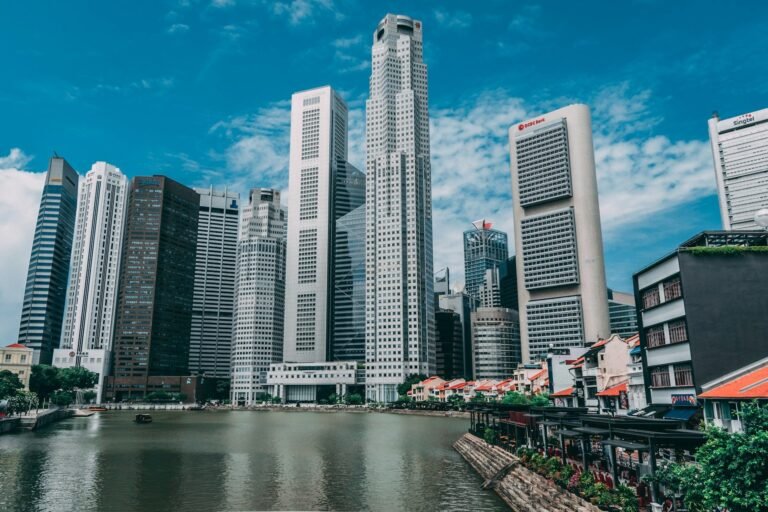
On March 28, a 7.7-magnitude earthquake struck central Myanmar, devastating communities and killing at least 3,500 people. The quake also caused buildings to sway, even collapse, in the tourist hot spot of Bangkok. Videos posted online showed water from rooftop swimming pools spilling over the sides of high-rise hotels.
Scientists can’t predict exactly where or when the next big quake will occur, though many popular vacation destinations such as California, Chile, Fiji, Italy, Japan, Mexico and the Caribbean lie in active earthquake zones. If you’re planning to travel to these or other quake-prone regions, there are some steps you can take to stay safe.
Take advantage of technology
Before you go, do some basic internet research to see if your destination has experienced major quakes.
Identify which local agency issues guidance and information during disasters and check whether your destination has an earthquake early-warning system. These networks of sensors automatically analyze big quakes the moment they start then send out an alert, giving those affected seconds to prepare before the ground starts shaking.
“Seconds matter,” in an earthquake, said Sara McBride, a scientist with the U.S. Geological Survey Earthquake Hazards Program. She pointed to footage from a Taiwan maternity ward during a 7.4-magnitude quake last year, when an alert sent a trio of nurses scrambling to push together a dozen bassinets, holding the newborns safely in place as the building lurched.
Some systems send alerts directly to your phone when quakes happen; you can also download apps like SASSLA for Mexico, SafetyTips or NERV for Japan, and MyShake in the United States to get push alerts. Also, register with the State Department’s Smart Traveler Enrollment Program, and leave a copy of your itinerary with friends or family, as quakes often sever communication lines.
“A bit of research can really make a difference,” Dr. McBride said.
Drop, cover and hold on
In most earthquakes, experts advise three simple actions to protect yourself: Drop, cover and hold on.
Earthquakes cause the ground to move in unpredictable ways, sometimes sharply jerking, other times swaying like a ship in rough seas. To prevent falling, drop to your hands and knees (or if you use a wheelchair, lock the wheels). Cover your head and neck with your arms. Crawl under a sturdy table or desk if nearby, or next to an interior wall if not. (Seeking shelter in a doorway is no longer recommended.)
Then hold on. If you’re under a table, grip a leg with one hand and stay put until the shaking stops. The bigger the quake, the longer it will last. For example, the 9.1-magnitude earthquake that struck Japan in 2011 went on for nearly six minutes.
If you’re indoors, resist the urge to run outside. You could be struck by falling debris or knocked to the ground. If you’re outdoors, stay outside and try to move away from buildings, streetlamps, power lines and trees. Dr. McBride cautioned that any movement during a quake can be dangerous. Even standing upright during intense shaking is difficult.
Practice what you would do in a quake. “You don’t want to learn how to use a fire extinguisher when your garage is on fire,” said Brian Blake, executive director of the Central United States Earthquake Consortium.
Building type matters
While the advice to stay inside and drop, cover and hold on applies to most situations, it doesn’t apply to all. According to the Earthquake Country Alliance, if you’re on the ground floor of a building constructed with little input from architects or engineers, such as mud-brick structures, this is the only instance in which you should consider moving outside during a quake.
Dr. McBride advised researching local protocols for earthquake response. Oftentimes the manager or safety officer at your hotel can provide guidance.
Such local knowledge was invaluable to Christine Bedenis, 37, of Detroit, who was backpacking in Nepal in 2015 when a magnitude-7.8 quake struck. Not long after the ground had stilled, dogs outside a restaurant started barking — a sign that an aftershock was coming — and locals hustled everyone out of the stone and wood building, which wasn’t built to withstand shaking.
It’s not over when the shaking stops
Once the quake subsides, many risks still remain — leaking gas lines, downed wires, fires and more. Coastal quakes are particularly dangerous because of possible tsunamis. If you’re on a coast when an intense quake strikes, “move inland on foot immediately,” said Wendy Bohon, an earthquake geologist and science communicator in California.
What’s more, aftershocks are inevitable with a big quake, and they may cause additional damage. If you’re in a heavily damaged building and can get outside, take your documents and medications with you, as you may not be able to re-enter.
Cellular networks are often overburdened after quakes, so try sending a text message or post on social media — using features like Facebook’s Safety Check — rather than making a voice call to tell friends and family you’re OK. Some newer phones also allow you to send text messages and share your location via satellite, if cellular networks are down.



